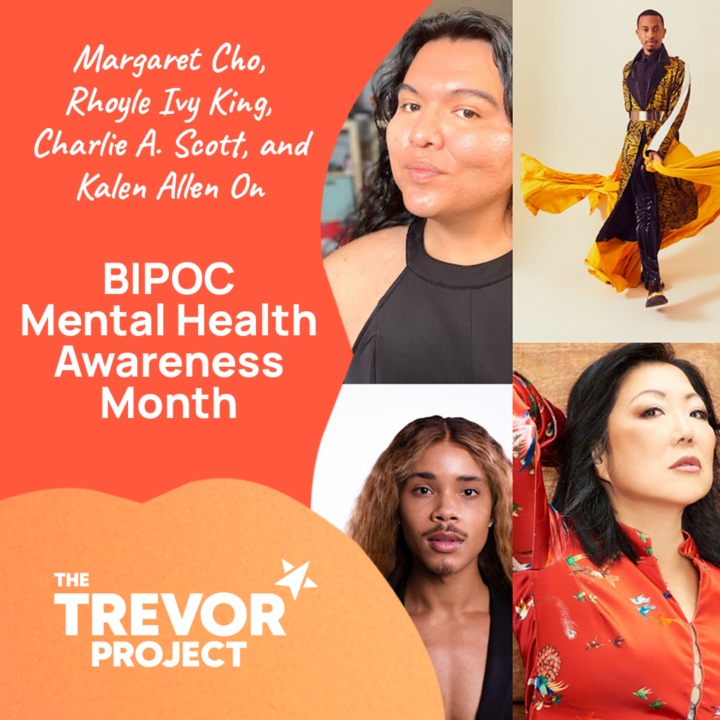By: Tia Dole (she/her), Ph.D., Chief Clinical Operations Officer
A recent survey conducted by The Trevor Project between October and December of 2020 found that over 90% of LGBTQ youth said that recent politics negatively influenced their well-being. This time frame captures the stressful period around the 2020 presidential election and the weeks of intense political division that followed. But it also must be noted within the context of this past year.
The last 12 months have been one of the most transformational, and challenging, time periods in modern history. While 2020 was predominantly characterized by the devastating global pandemic and associated economic turmoil, we also witnessed a series of record-breaking natural disasters that underscored the existential threat of climate change. Over the summer, millions of Americans took part in a social justice uprising against anti-Black violence and systemic racism. Since then, we’ve had the outcome of a free and fair election disputed by a sitting president, raising the prospect that, for the first time in recent U.S. history, we would not have a peaceful transition of power. Then 2021 began with an armed insurrection attempt at the U.S. Capitol — which further highlighted the double standards experienced by the Black Lives Matter movement — serious delays to the long-promised distribution of COVID-19 vaccines, and the second impeachment of President Trump. It has been a mess of a new year and we are only two weeks in!
We know that everyone is worn out from these events and that the continued lack of action to confront injustice can be incredibly frustrating. We also know that certain populations, like young people who are LGBTQ and/or Black, Indigenous, people of color have been disproportionately impacted and continue to face unique struggles. Across our 24/7 crisis services platforms, we’ve been hearing from LGBTQ young people who have expressed a wide range of emotions, including fear, anxiety, anger, grief, and downright emotional exhaustion. For many, physical distancing has meant being forced to confine in unsupportive living environments, sometimes around family members or neighbors with whom they intensely disagree. Feelings of rejection, whether it is by your own family or your own country, can be extremely hard to grapple with.
If you are experiencing these emotions you are not alone. For some, this emotional stress can present itself in the form of physical symptoms, including an inability to concentrate on school, lack of sleep, and nausea. In the midst of all of these intense emotions and uncertainty, it is so important to take care of yourself and to prioritize your mental health. The Trevor Project is here for you 24/7, and we can help you understand and manage any anxiety and stress you may be experiencing. Together, let’s explore some coping strategies and action steps. And remember, there is no correct way to process or respond to what is going on in the world right now. It’s key to find what works best for you.
What can I do to take care of myself?
- Stop overfunctioning. We have seen many LGBTQ youth who “overfunction” in their lives. LGBTQ young people often strive to be as perfect as possible at school and in life so that they aren’t rejected by family members due to their LGBTQ identity. However, during this last year, overfunctioning has taken a toll. We want to tell you that you don’t have to be perfect. You can make mistakes and sometimes you won’t have the capacity to be there for others. That’s ok too. You are loved.
- Feel your feelings. All of your feelings are valid. As humans, we sometimes squash our emotions so that we can function. Some people call this “stuffing” their emotions. It is a very effective coping mechanism that can backfire on you. If possible, try to allow yourself some moments to feel what you are feeling (e.g., rage, hopelessness). Give yourself time to feel and make sure you build time to tuck it back in if you need.
- Find calm. With everything going on, this can seem like an impossible task but think long and hard about what makes you feel relaxed and at ease. That could involve listening to music, working out, doing yoga, meditating, or cooking. Or it could involve small things that make you feel better, such as taking a moment to enjoy a piece of candy, play with your pet, or start a new game. Look out for the little things each day that bring you joy and help reduce stress.
- Unplug. If you are ever feeling overwhelmed by the news or social media, do yourself a favor and take a break. While it can be great to stay informed, the world might seem like way too much right now. We urge you to find time each day to disconnect from ALL screens — no phone, iPad, computer, or TV. Or at least set firm boundaries for yourself, like no screen time right before bed. Use this time to center yourself and try to process your emotions without input from others.
- Sleep. Disconnect from your devices — even leave them in another room — and try your hardest to get eight good hours of sleep each night. Allowing our bodies to rest is essential for our physical and mental health, and a proven way to reduce stress.
- Pivot to action. When things are out of your control and you start to feel helpless or hopeless, channeling your energy into taking action can help. These actions could involve political activism, volunteer work, or donating to organizations you care about.
- Empower yourself through education. If you find yourself having a hard time disconnecting from social media, try pivoting to more reliable news sources. Explore media and literature that reflect more nuanced and positive LGBTQ representation. Education is power and learning more about the issues you care most about can help you gain the confidence to express yourself, have difficult conversations, and help educate others.
- Connect with support systems. Whenever you feel surrounded by too much negativity, make time to connect with the people in your life who accept and validate you for who you are. These positive connections are vital for our mental health. If you are not out to anyone in your life and are looking for an affirming community online, try starting with TrevorSpace.org. It can be a great way to build community with fellow LGBTQ young people who might be going through similar experiences.
- Get help. If you are ever feeling hopeless or suicidal, or simply need to talk with someone to help you process your emotions, please contact The Trevor Project. There are also other resources including online counseling or psychotherapy, and apps that you can download on your phone with helpful mental health resources.
Approach difficult conversations with care — and pick your battles.
As we shared around the presidential election, you may have parents, relatives, friends, neighbors, or other people in your life who have strong feelings about recent politics or issues that you disagree with. This can be incredibly hard, frustrating, and feel invalidating as an LGBTQ young person.
If you’re ever considering engaging in a political discussion with someone in your life, first consider whether it’s worth it. You may feel the need to try and change someone’s mind, but the decision to put yourself in a situation that could threaten your mental and emotional health should be one that you make carefully. You cannot control how someone may respond to you, but you can set expectations for yourself. We also want to acknowledge that some of these conversations happen not because you think you can change the other person’s mind, but because you feel like you need to stand up to the person saying hurtful things to you. In either case, I would like you to first consider these questions:
- What is your motivation for having the conversation? What would you like to get out of it?
- Have you ever had a conversation like this before? How did it go?
- How comfortable are you talking about this topic?
- How does your experience as an LGBTQ person inform your point of view?
- What aspects of the subject do you find challenging?
- What are your assumptions about the other person’s understanding?
- What environment and time do you think would be the safest to engage in this conversation?
After thinking it through, you may decide that you no longer want to have the conversation, and that’s okay!
If you do choose to have that discussion, it’s critical to make a safety plan. This can include making alternative arrangements for housing, food, or transportation in advance. And then upon entering the conversation, consider communicating any ground rules that might help to create a safe space for you to express yourself, such as only allowing one person to speak at a time. If these ground rules are not respected, or the discussion ever reaches a point where it is no longer productive or safe for your well-being, consider putting your safety plan into action and ending the conversation.
The process of having difficult conversations does not begin or end with the discussion itself. It is essential to consider your mental health and wellness at each step in the journey, especially if you are having these conversations with people you live with.
Never give up.
So many things may seem to be out of your control right now and this can understandably lead to negative emotions. Each day, if you can, you should check-in with yourself about your mental health, set boundaries, and be honest about when you need to take a break.
And don’t give up. Your life is valuable and you are not alone. We value you.
Despite the ever-changing nature of politics and all of the uncertainty around COVID-19, The Trevor Project will continue to be here 24/7 to support the unique needs of LGBTQ youth. And we’re not going to stop fighting — through advocacy, research, education, and more — to make the world a better place for LGBTQ people because you deserve to live your life free from discrimination and fear.
We are here for you no matter what, and you can be there for yourself, too!

